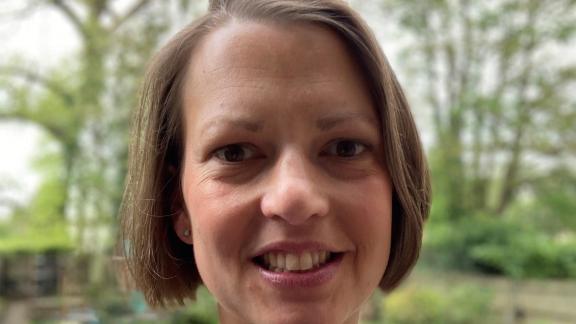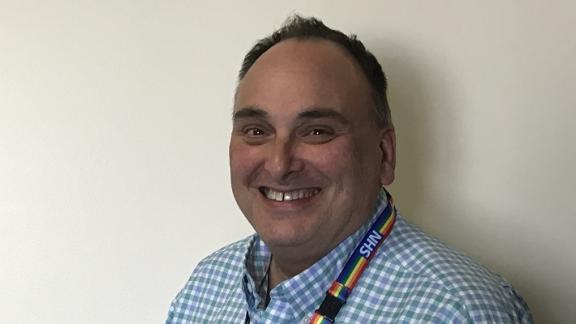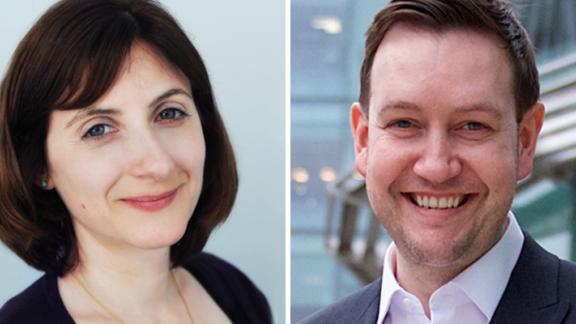Building an understanding of infant mental health

Giving children the best start in life requires joined-up, effective and sustained action, but achieving this can be difficult because professionals often lack a shared understanding of what mental health means during early life.
Babies’ and young children’s mental health is shaped by a complex interplay of many factors. A range of services and public policies, alongside families and communities, play a role in supporting babies and young children to be mentally healthy. Services such as, but not limited to, maternity, health visiting, mental health, family support and early education all offer a range of prevention, promotion, early intervention and therapeutic mental health support. Wider public services, such as housing, parks and playgroups can also help to create environments in which babies and young children can thrive.
Giving our children the best start in life requires joined-up, effective and sustained action, drawing on the strengths of all these services. But securing this joint action and collaboration can be difficult because professionals often lack a shared understanding of what mental health means during early life.
Varied understanding of mental health
I know from many years working in this field, that professionals from different sectors can use different language to describe different elements of mental health. Professionals can have varied understandings of what mental health means, grounded in different theoretical perspectives. Many professionals, including those in children and young people’s mental health services, often do not cover infant mental health in their pre-qualification training and rarely have experience working with babies and young children.
Tackling the patchy understanding of mental health in infancy and early childhood is a crucial step in enabling effective action
There is sometimes discomfort around the term ‘infant mental health.’ This is, perhaps, because people take traditional concepts of mental health, often focused on deficits and diagnoses in individuals, and try to apply them to babies. Researchers from Oxford found this poor understanding could be a barrier to commissioning. A local professional told the researchers “People don’t understand what you mean by infant mental health … People get bogged down in what [mental health] might look like in relation to an infant…”
Tackling the patchy understanding of mental health in infancy and early childhood is a crucial step in enabling effective action. This is why UNICEF-UK and PEDAL worked together to create a toolkit for understanding and supporting mental health in infancy and early childhood.
The toolkit includes a new framework that sets out what it means to be mentally healthy, which it describes as a ‘positive state that enables us to enjoy life and deal with challenges, not just as the presence or lack of diagnosable conditions.’ It describes three elements of mental health, emotional, social and behavioural. Put simply, being mentally healthy involves having or developing the ability to understand and manage emotions; experiencing nurturing and meaningful relationships; and being able to explore, play and learn in developmentally appropriate ways. The broad and positive definition echoes how the World Health Organization defines mental health, but it may differ from how local mental health services and strategies are often framed.
The toolkit describes how mental health exists in the context of children’s development and relationships: young babies need caregivers to support elements of their mental health. A baby cannot understand and manage their own emotions, for example, they need their caregivers to soothe them when they cry. Cognitive development also underpins mental health: as a child grows their language skills will support their ability to recognise and describe their emotions.
Enabling better understanding
We hope that the framework will enable decision-makers and practitioners to better understand infant mental health and their contributions to it. An early years setting, for example, may recognise how it supports the development of emotional regulation and peer relationships, whereas a specialist parent-infant team will see their role in providing therapeutic support to repair early relationships. Both are contributing to aspects of babies’ and young children’s mental health.
Moving away from a deficit and diagnosis-focused understanding of mental health also helps us to comprehend how mental health services might not focus on … diagnosed conditions
Moving away from a deficit and diagnosis-focused understanding of mental health also helps us to comprehend how mental health services might not focus on, or require people to have, diagnosed conditions. Infant mental health services such as parent-infant teams focus on families where there is an accumulation of risk factors; signs of stress or distress in a baby; and/or clear difficulties in the early parent-child relationship. These services do vitally important therapeutic work with vulnerable families and need leadership from skilled mental health professionals, such as psychotherapists and psychologists, but their referral criteria and approach are very different to other mental health services. To create effective and developmentally appropriate mental health services for babies and young children, commissioners must first adopt a broader concept of what mental health services look like.
Examples of action
In some areas, local partnerships across council, health and voluntary sector services are working together to protect and promote young children’s mental health. In Salford, for example, there are a range of services such as parenting support in family hubs, a specialised parent-infant relationship team and perinatal mental health team, a Home-Start baby bonding service, and community-led stay and play groups, all of which are supporting aspects of mental health in different ways. The toolkit contains other examples of local areas offering both universal, targeted and special parent-infant relationship support and acting on wider determinants of mental health, such as Blackpool’s work to improve playgrounds and public spaces.
Infant Mental Health Awareness Week is a good time to both take stock and look to the future. And we can help ensure a strong foundation for future action by talking to local partners and communities about what it means for babies and young children to be mentally healthy.
Sally Hogg is senior policy fellow at the Centre for Research on Play in Education, Development and Learning (PEDAL). You can follow Sally on Twitter @salhogg


